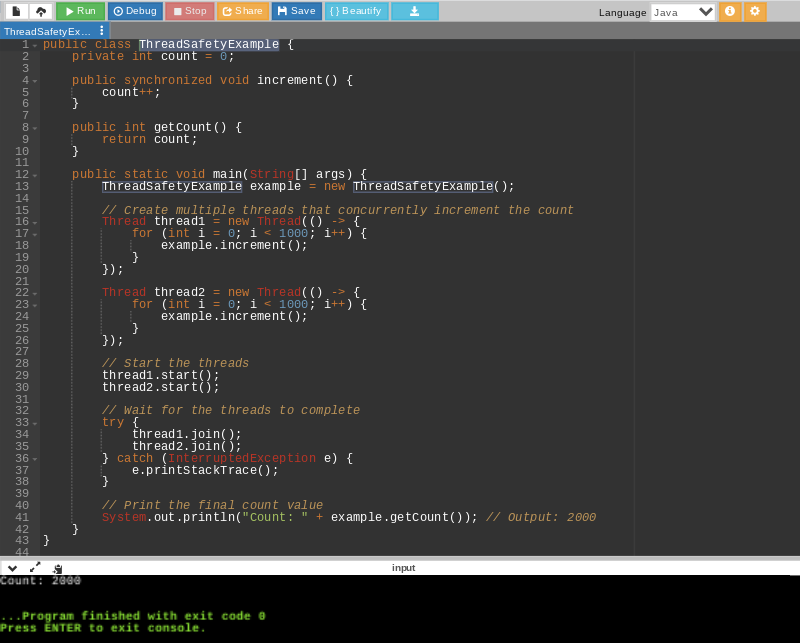Why Are Strings Immutable in Java? In-depth Evaluation for Designers
Why Are Strings Immutable in Java? In-depth Evaluation for Designers
Blog Article
What Is Unalterable Strings and Just How It Works
In the realm of programs, comprehending the principle of unalterable strings is vital for developing robust and protected applications. Immutable strings describe strings that can not be modified after they are created, guaranteeing data stability and predictability within the code. This basic concept plays an important duty in numerous shows languages and supplies a distinct method to dealing with information. By checking out the intricacies of how immutable strings work, one can uncover a globe of benefits and opportunities that can boost the top quality and effectiveness of software advancement.
The Basics of Unalterable Strings
Unalterable strings, as a fundamental principle in shows, are character series that can not be changed when they are produced. This implies that as soon as a string is appointed a worth, that worth can not be altered. In languages like Python and Java, strings are unalterable things, resulting in numerous implications in terms of memory management and information honesty.
One of the crucial advantages of immutable strings is that they offer a feeling of protection in information manipulation. Because the content of an immutable string can not be changed, it makes sure that the original data continues to be undamaged, lowering the danger of unplanned modifications during program implementation (Why are strings immutable in Java?). This home additionally streamlines debugging processes, as programmers can trust that once a string is specified, its value will certainly not be inadvertently altered
When a new string is developed based on an existing one, instead than changing the initial string, the new worth is stored independently. In general, comprehending the essentials of unalterable strings is essential for mastering programming concepts and optimizing code performance.
Advantages of Unalterable Strings
Building upon the safety and performance advantages of unalterable strings, their benefits prolong to boosting code integrity and streamlining simultaneous shows jobs. By being immutable, strings can not be modified after creation, which removes the threat of unplanned adjustments in the data they keep. This intrinsic immutability guarantees that once a string is developed, its worth stays continuous throughout the program's execution, decreasing the chances of bugs brought on by unanticipated modifications.
In addition, immutable strings contribute to code integrity by making it simpler to reason concerning the state of a program. Given that strings can not be changed, designers can trust that a string will certainly constantly hold the same value, streamlining debugging and maintenance initiatives. This predictability brings about much more reputable and stable codebases.

Execution in Programming Languages
Within various programs languages, the consolidation of unalterable strings is an essential facet that impacts how information is managed and manipulated within code frameworks. The application of immutable strings varies across different programs languages, with each language supplying its visit this web-site own devices to support this principle.

On the other hand, languages like C and C++ do not have integrated support for unalterable strings. Designers in these languages must by hand implement immutability by enforcing regulations within their code to avoid straight adjustments to string objects.
Ideal Practices for Dealing With Unalterable Strings
When handling unalterable strings in shows languages like Java and Python, adhering to finest techniques makes sure protected and reliable data manipulation. One of the key best techniques is to make use of StringBuilder or StringBuffer as opposed to directly controling strings, particularly when managing substantial concatenation procedures. These courses provide mutable alternatives for string adjustment, aiding to stay clear of unnecessary memory allowances and enhancing efficiency.
Another ideal technique is to make use of string interpolation or format works supplied by the language rather than hands-on concatenation. This not just improves readability but likewise aids in stopping typical mistakes such as unintended string adjustments. Furthermore, when dealing with sensitive data such as passwords or API tricks, it is essential to stay clear of saving them as plain text in immutable strings. Utilizing protected storage space systems like char More Info varieties or specialized libraries for dealing with delicate details assists mitigate security risks related to unalterable strings.
Real-world Applications and Examples
Discovering practical applications of immutable strings in various markets exposes their significant influence on data honesty and system dependability. In the healthcare sector, immutable strings play an important function in ensuring the protection and discretion of person data. By avoiding unapproved adjustments to sensitive details such as medical records and prescriptions, immutable strings aid keep compliance with rigorous personal privacy policies like HIPAA.
Banks likewise take advantage of the unalterable nature of strings to improve the security of client data and deal documents. Unalterable strings assist stop fraudulence and unapproved alterations to economic information, supplying a robust defense versus cyber hazards and making certain the trust fund and self-confidence of customers.
Final Thought
Best methods for functioning with immutable strings include avoiding direct modifications and making use of methods that return new string items. Real-world applications of unalterable strings include information encryption, caching, and string manipulation tasks.
Unalterable strings refer to strings that can not be modified after they are produced, making sure information integrity and predictability within the code. When a brand-new string is created based on an existing one, rather than modifying the original string, the new value is kept independently.In languages like Java and Python, strings are immutable by default, indicating that when a string item is developed, its worth can not be transformed - Why are strings immutable in Java?. Finest methods for functioning with unalterable strings include preventing direct adjustments and using techniques that return new string items. Click This Link Real-world applications of immutable strings consist of data security, caching, and string manipulation jobs
Report this page